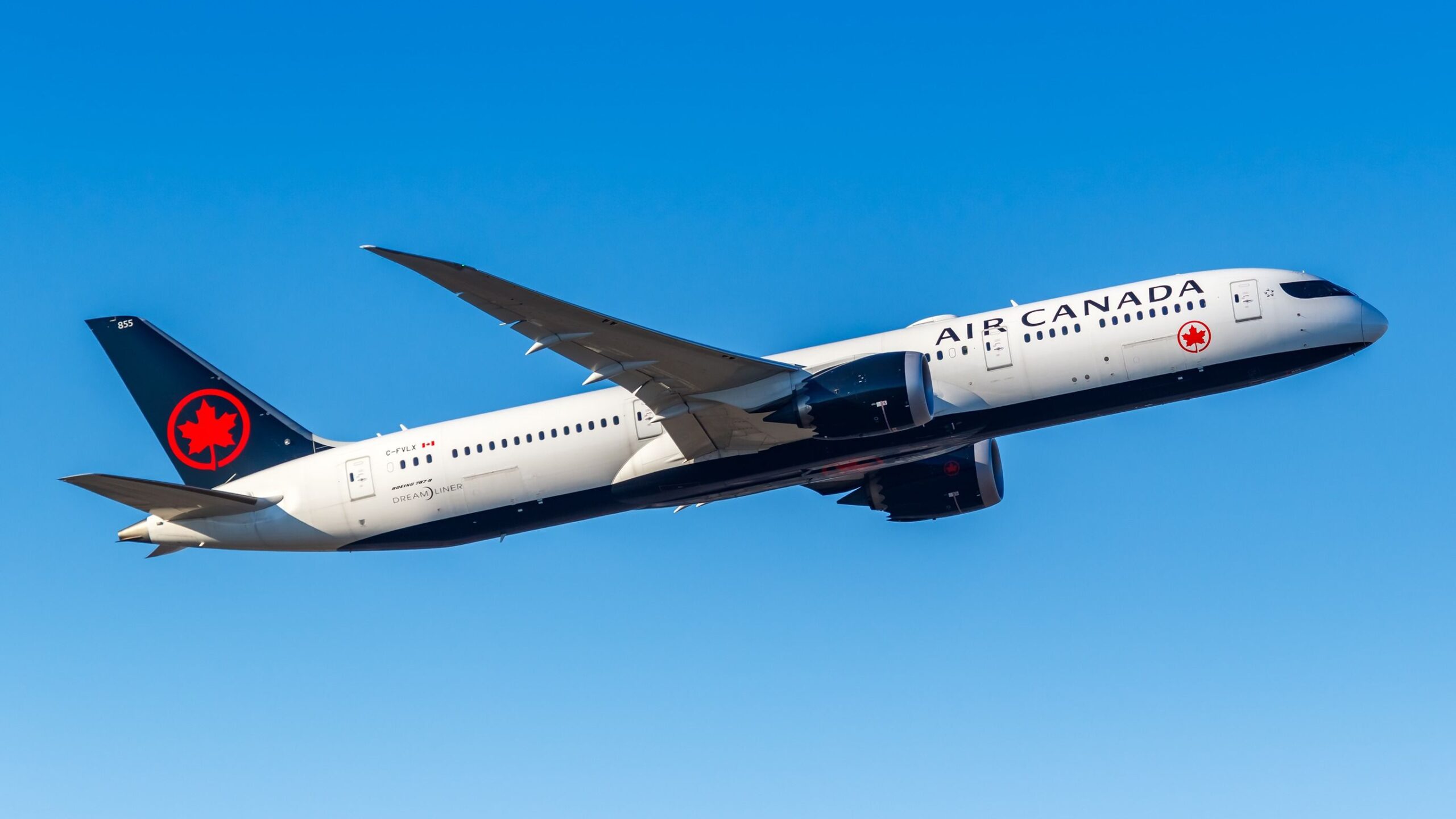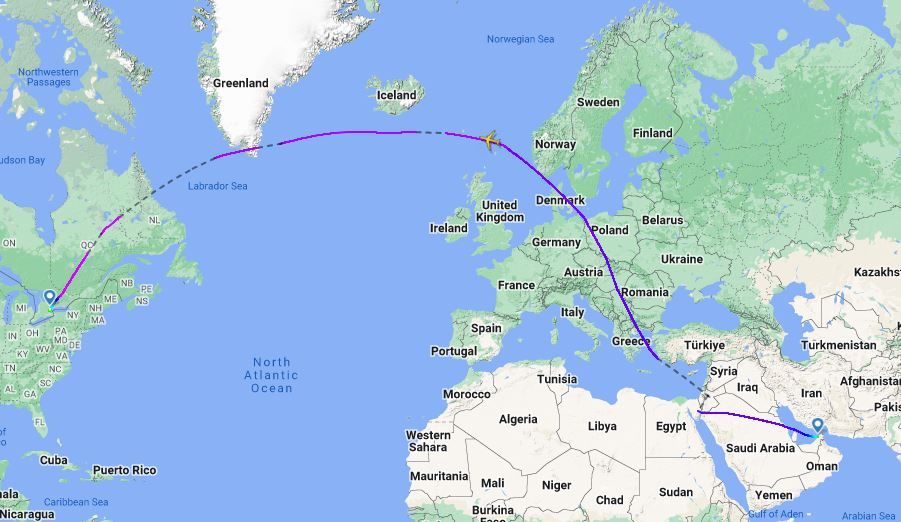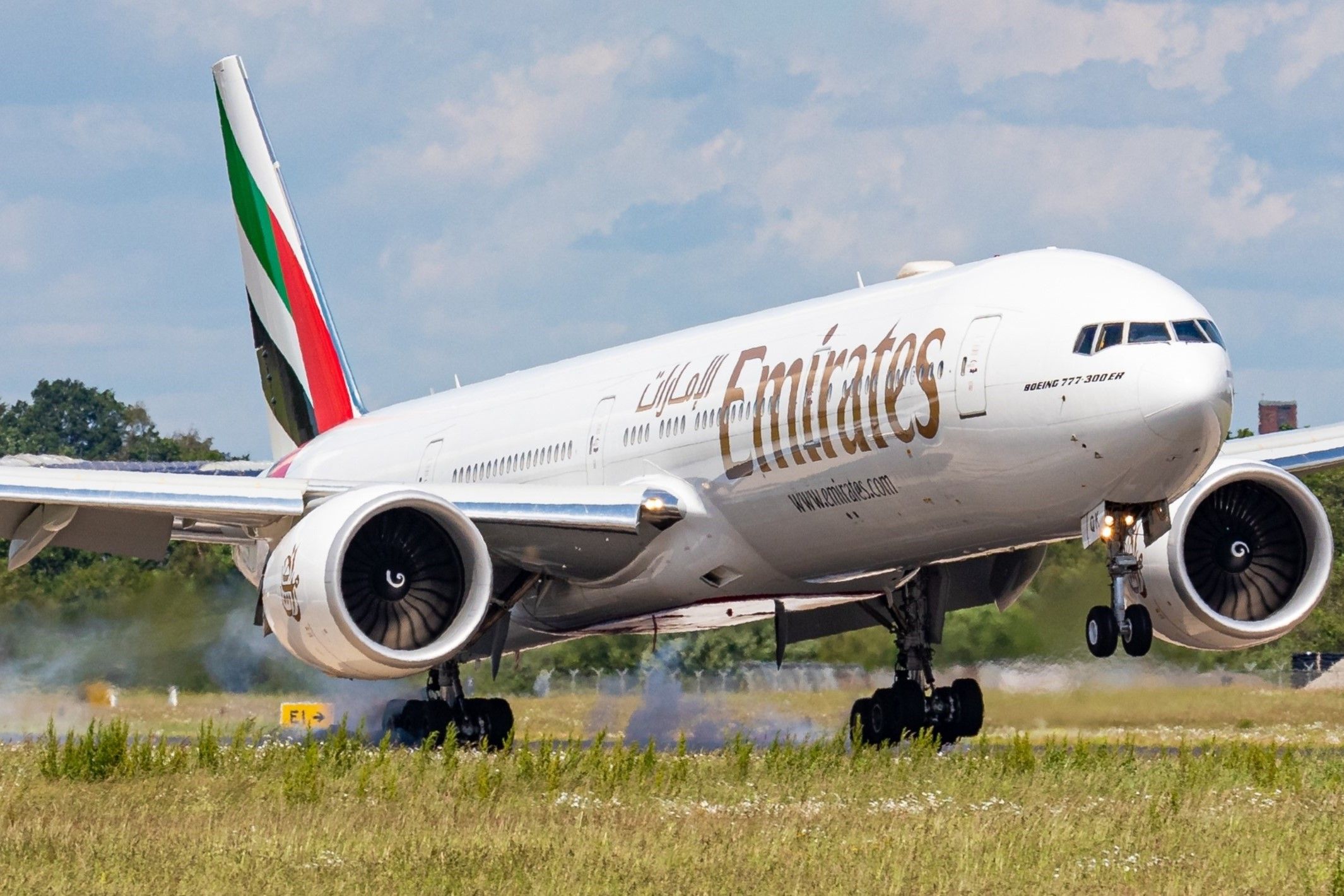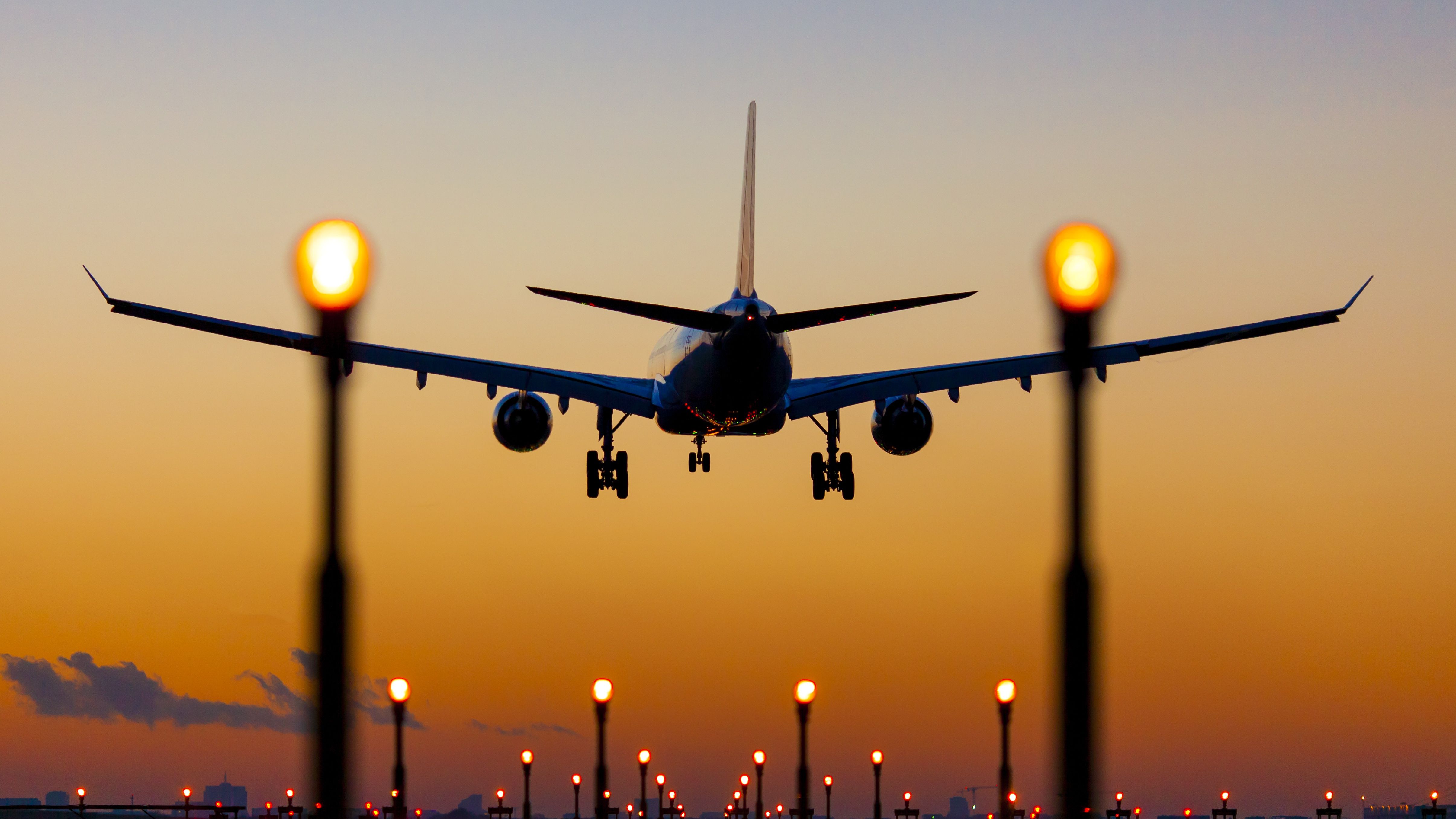 Air Canada
Air Canada
the US Department of Transportation fined the carrier $250,000 after it was found that the carrier had flown over prohibited Iraqi airspace between 2022 and 2023. The department had jurisdiction to penalize the airline, as the flights had a United Airlines designator code through codeshare arrangements between the Canadian and Chicago-based airlines.
Flights between Dubai and Toronto were the culprit
It appears the violations occurred from Air Canada’s direct flights that operated between  Dubai International Airport
Dubai International Airport
(DXB), and Toronto Pearson International Airport
(YYZ), through airspace that was prohibited by the FAA for US carriers.
Looking at Flightradar24, on a recent flight between the two airports, you can see the deviation required to bypass the skies of Iraq. They cited that the reasoning for the ‘complex security environment’ that does exist over Iraq means that the Canadian carrier is required to pay $125,000 of the initial fine and $125,000 again if it violates the order again. It would be presumed unlikely for Air Canada to face the penalty anytime soon, given that it ended its codeshare with United Airlines on the route in January 2023.
‘Brief and unplanned’
Air Canada has stressed that the flights that were caught flying over Iraq
were unplanned and accidental incidents caused by several factors, blaming air traffic control restrictions and aircraft changes that needed more time to achieve a sufficient altitude so safety would not be compromised. The Canadian carrier has noted that it has taken further action for future flights to prevent the situation from occurring again.
Photo: Wirestock Creators | Shutterstock
It’s not the first time an airline has been penalized for such a move. Dubai-based  Emirates
Emirates
was also fined $1.5 million from DOT after its codeshare saw its metal pass over Iraqi airspace in June. This was the second time Emirateshads incurred the fee, the first time being in 2020.
Why is it unsafe to fly over Iraq?
According to Safe Air Space, civilian aircraft are restricted from flying through Iraqi airspace for several reasons. Many countries have issued airspace warnings advising operations to avoid the country, especially if flying at lower altitudes.
The primary risk is due to intentional targeting from terrorist organizations that hold portable anti-aircraft weaponry. It is presumed that civil aircraft could be misidentified by local or foreign military and shot at. Drone attacks from Turkey and Iran are also common in the northern regions of Iraq, which places civil aircraft at high risk. Airspace warnings issued by foreign authorities do allow for some overflights at higher altitudes, but there remains a clear risk for civilian aircraft flying in general over Iraq.
Photo: Guido Benedetto | Shutterstock
A secondary reason is GPS spoofing. In 2023, aircraft were targeted with a fak signal, which led to navigational failures. While GPS spoofing is uncommon, it has been seen several times above Iraq.




